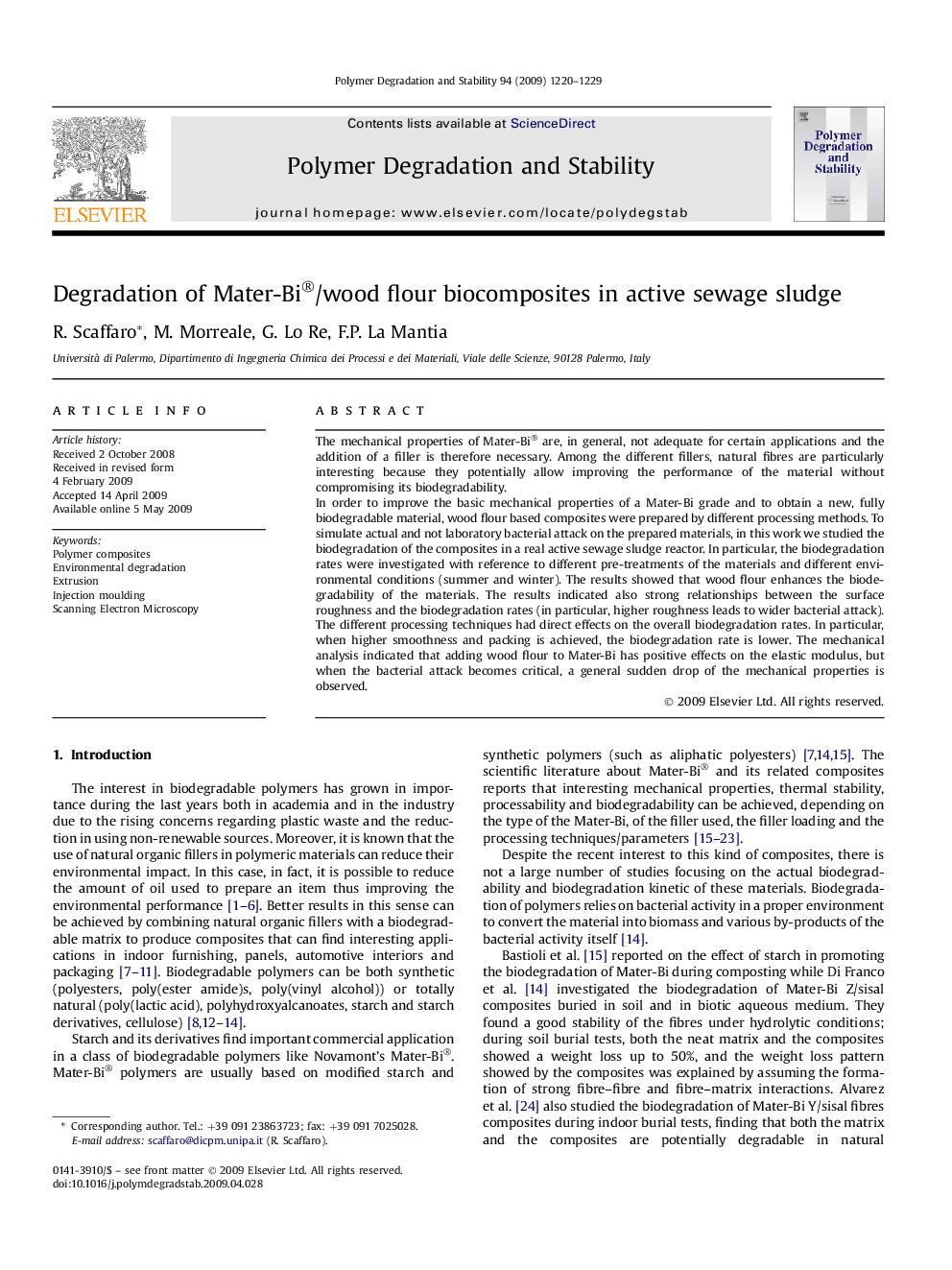| Article ID | Journal | Published Year | Pages | File Type |
|---|---|---|---|---|
| 5203018 | Polymer Degradation and Stability | 2009 | 10 Pages |
Abstract
In order to improve the basic mechanical properties of a Mater-Bi grade and to obtain a new, fully biodegradable material, wood flour based composites were prepared by different processing methods. To simulate actual and not laboratory bacterial attack on the prepared materials, in this work we studied the biodegradation of the composites in a real active sewage sludge reactor. In particular, the biodegradation rates were investigated with reference to different pre-treatments of the materials and different environmental conditions (summer and winter). The results showed that wood flour enhances the biodegradability of the materials. The results indicated also strong relationships between the surface roughness and the biodegradation rates (in particular, higher roughness leads to wider bacterial attack). The different processing techniques had direct effects on the overall biodegradation rates. In particular, when higher smoothness and packing is achieved, the biodegradation rate is lower. The mechanical analysis indicated that adding wood flour to Mater-Bi has positive effects on the elastic modulus, but when the bacterial attack becomes critical, a general sudden drop of the mechanical properties is observed.
Keywords
Related Topics
Physical Sciences and Engineering
Chemistry
Organic Chemistry
Authors
R. Scaffaro, M. Morreale, G. Lo Re, F.P. La Mantia,
